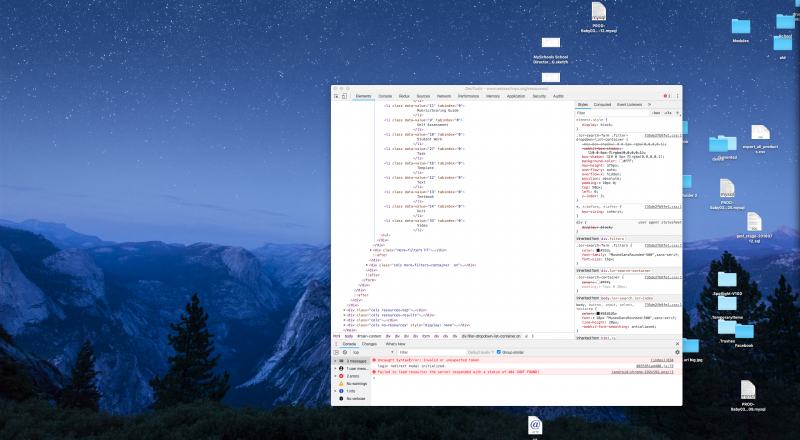About Newborn Screening Newborn Screening 101

What is newborn screening?
Newborn screening is a state public health service that reaches each of the nearly 4 million babies born in the United States each year. It ensures that all babies are screened for certain serious conditions at birth, and for those babies with the conditions, it allows doctors to start treatment before some of the harmful effects happen.
Newborn screening is performed soon after the birth of your baby, and in most cases, while you are still in the hospital. All it takes is a few drops of blood and a simple hearing test. Learn more about the testing process in the What To Expect section.
Newborn screening began in the 1960s when scientist Robert Guthrie, MD, PhD, developed a blood test that could detect whether newborns had the metabolic disorder, phenylketonuria (PKU). Since then, scientists have developed more tests to screen newborns for a variety of severe conditions. Screening tests are currently available for more than 60 disorders. However, there is variability in the number and types of conditions found on each state’s newborn screening panel, which is determined by each state public health department.
Screening, in general, is a public health service designed to identify individuals in a population who may be at an increased risk of a certain disease. Because the test is performed before an individual has any observable symptoms, it allows a condition to be identified and treated before a problem occurs. A screening test cannot confirm or rule out a particular condition. Stated differently, newborn screening is not a diagnostic test. It identifies individuals who may have the condition so that definitive follow-up testing can be offered to determine if the condition is truly present. Visit our testing outcomes page for more information.
Key Facts
- The conditions newborns are screened for differ in each state.
- Most states screen for 29 of the 34 conditions recommended by the Discretionary Advisory Committee on Heritable Disorders in Newborns and Children. Although these conditions are rare, each year over 5,000 babies are identified with a newborn screening condition.
- There are three parts to newborn screening. A heel stick to collect a small blood sample, pulse oximetry to look at the amount of oxygen in the baby’s blood, and a hearing screen.
- The blood test is generally performed when a baby is 24 to 48 hours old. This timing is important because certain conditions may go undetected if the blood sample is drawn before 24 hours of age.
- Newborn screening does not confirm a baby has a condition. If a positive screen is detected, parents will be notified immediately and follow-up testing will be done.
- Every baby born in the United States will be screened unless a parent decides to opt out for religious reasons.
FAQ
- Q: My nurse said my baby needed a “PKU test.” Is a “PKU test” the same as “newborn screening”?
A: Yes. Some health professionals will use the term “PKU test” as a synonym for “newborn screening.” The term “PKU test” can be misleading. Every state screens for phenylketonuria (PKU), a rare metabolic disorder, but they also screen for many other conditions. To find out what conditions are included in your state’s newborn screening program visit this page.
- Q: Will the newborn screening blood test hurt my baby?
- A: Most babies experience some brief discomfort from the heel stick, but it heals quickly and leaves no scar. The following suggestions may help make the screening experience more comfortable for you and your baby:
1. Nurse/feed the baby before and/or after the procedure.
2. Hold the baby during the procedure.
3. Make sure the baby is warm and comfortable during the procedure.
Studies show that when mothers or health professionals comfort babies during the heel stick, the babies are less likely to cry.- Q: Why are all babies screened at birth?
- A: Most babies are born healthy. However, some infants have a serious medical condition even though they look and act like all newborns. These babies generally come from families with no previous history of a condition. Newborn screening allows health professionals to identify and treat certain conditions before they make a baby sick. Most babies with these conditions who are identified at birth and treated early are able to grow up healthy with normal development.
- Q: Do parents have to ask for screening?
- A: No – it is normal hospital procedure to screen every baby regardless of whether the parent asks for it and whether the parents have health insurance. The screening test is normally included in the forms for standard medical procedures that the newborn may need after birth. Parents sign this form upon arrival at the hospital for the birth of their baby. All states require screening to be performed on newborns, but most will allow parents to refuse for religious purposes. Any decision to decline or refuse testing should first be discussed with a health professional, since newborn screening is designed to protect the health of the baby.
- Q: How are screening costs covered?
- A: Newborn screening test costs vary by state because individual states finance their newborn screening programs in different ways. Most states collect a fee for screening, but health insurance or other programs often cover all or part of it. Babies will receive newborn screening regardless of health insurance status. For more information regarding the cost of newborn screening in your state, contact your state’s newborn screening coordinator. Find the contact info for your state coordinator by searching for your state here.
Today, EVERY baby can be screened.
Each year, over 5,000 babies are born with one of the conditions included in state newborn screening panels. Most of these infants appear perfectly healthy at birth and come from families with no history of the disorder. Unfortunately, once symptoms appear, they are often irreversible, leading to severe health and developmental problems or even death. Every baby born in the United States is required by law to undergo newborn screening prior to leaving the hospital because it is the only way to tell if a seemingly healthy infant has one of these rare, but serious, conditions. Most affected babies identified through newborn screening who receive treatment early grow up healthy with normal development.
For more information regarding the newborn screening procedure and what to expect at the hospital, see the Screening Procedures section.
Was this Helpful?
Your input helps us improve the site for parents and practitioners. Leave us feedback about this page.
Was this page helpful?
Last Reviewed - 9/1/17
Last Reviewed - 9/1/17
Ask an Expert
Have a question that’s not answered on Baby’s First Test? Send it to our experts.


